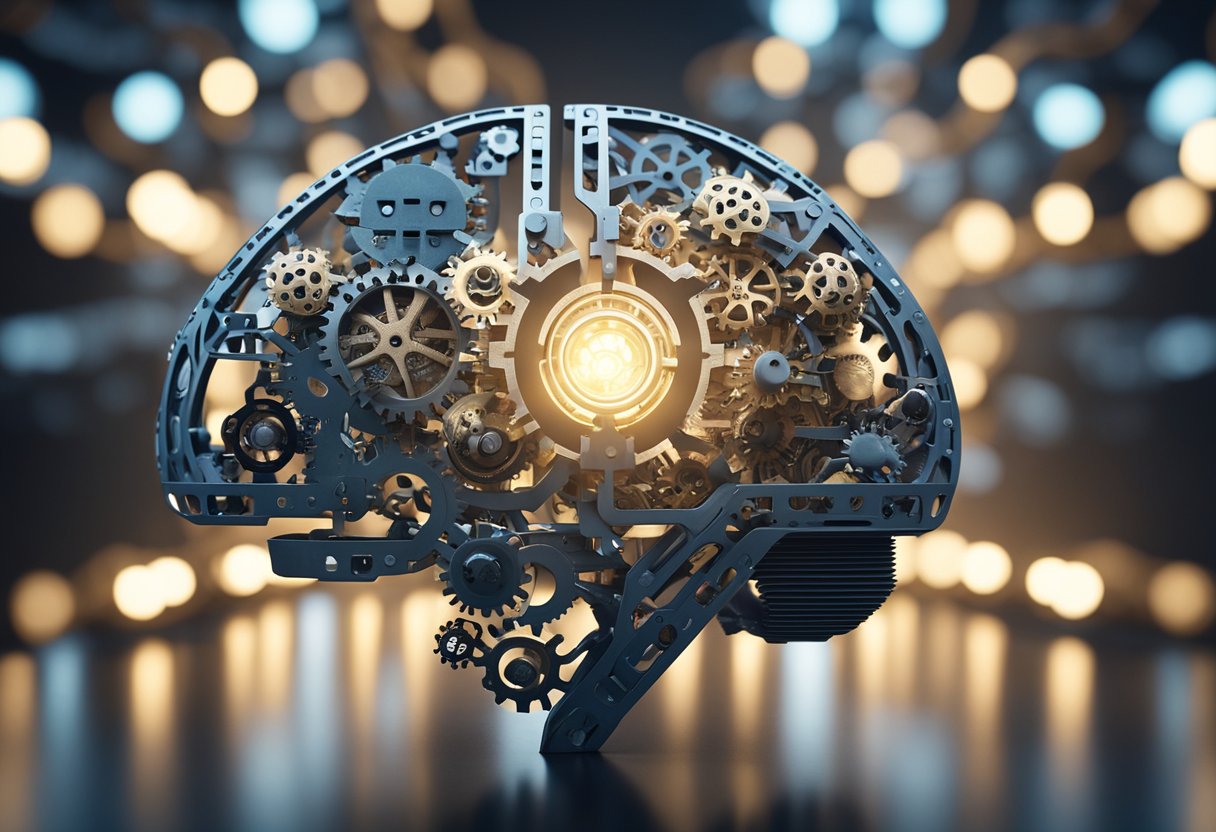How To Become Smarter: Practical Strategies for Everyday Growth
Becoming smarter is a goal many strive for, and it involves enhancing one’s cognitive abilities and brain function. By adopting simple habits such as regular reading, engaging in stimulating conversations, and maintaining a balanced diet, anyone can improve their intelligence. These actions not only sharpen the mind but also support overall brain health.

Many people believe that intelligence is fixed, but research shows that it can be developed with the right approaches. Lifestyle changes like exercising, getting enough sleep, and even practicing mindfulness can significantly boost brain function. Engaging in activities that challenge the mind, such as puzzles or learning a new skill, can also contribute to becoming smarter.
As individuals seek to enhance their intelligence, it is crucial to remember that small, consistent efforts often yield the best results. By focusing on personal growth through everyday practices, anyone can unlock their full potential and enjoy the benefits of a sharper, more agile mind.
Important Points
Understanding Intelligence
Intelligence is a complex trait influenced by various factors. It includes different types of intelligence and relies on cognitive functions and brain health. The balance between genetics and environment also plays a crucial role in shaping a person’s intelligence.
Types of Intelligence
There are several recognized types of intelligence, each emphasizing unique strengths.
- Linguistic Intelligence: This involves the ability to use language effectively. Writers, poets, and speakers often excel here.
- Numerical Intelligence: This type relates to quantitative problem-solving and calculations, common in mathematicians and scientists.
- Kinesthetic Intelligence: This includes physical coordination and skill, seen in athletes and dancers.
- Musical Intelligence: People with this strength are adept at understanding music and rhythms.
- Interpersonal Intelligence: This refers to the ability to understand and interact well with others.
- Intrapersonal Intelligence: It involves self-reflection and understanding one’s emotions and motivations.
- Spatial Intelligence: This relates to visualizing and manipulating objects and is vital in fields like architecture.
- Naturalistic Intelligence: People with this intelligence excel in recognizing and categorizing natural elements.
Recognizing these types helps in understanding individual strengths and potentials.
Cognitive Function and Brain Health
Cognitive function encompasses various mental processes, including memory, attention, and problem-solving skills. Maintaining brain health is essential for optimal cognitive function.
To support brain health, certain activities can be beneficial:
- Engaging in regular exercise improves blood flow to the brain.
- Eating a balanced diet rich in omega-3 fatty acids supports neural function.
- Mental activities such as puzzles and reading can enhance cognitive skills.
Fluid intelligence, the capacity to think abstractly and solve problems in new situations, is also vital. Research shows that consistent mental challenges can improve fluid intelligence over time.
The Role of Genetics and Environment
Genetics certainly set a foundation for intelligence, but environment is equally influential. Studies indicate that hereditary factors contribute significantly to a person’s cognitive abilities.
However, environmental factors, such as education and familial support, play a crucial role in nurturing intelligence.
- Early education can enhance linguistic and numerical skills.
- Parent involvement fosters emotional and social intelligence in children.
The interplay of genetics and environment means that while some individuals may have a genetic predisposition for certain intelligences, opportunities and experiences significantly shape their development.
Fostering a Growth Mindset

A growth mindset is essential for anyone looking to improve their intelligence and abilities. It encourages motivation and self-improvement, leading to intellectual growth. By fostering this mindset, individuals can embrace challenges and continually develop their skills.
The Power of Belief
Belief plays a crucial role in shaping a growth mindset. When individuals believe their abilities can improve through effort, they are more likely to take risks and try new things. This mindset helps them see failures as opportunities for learning rather than setbacks.
They can reinforce their beliefs through positive self-talk. Phrases like “I can learn this” or “Challenges help me grow” can motivate them to push through difficulties. As they make progress, their confidence builds, creating a cycle of continual improvement.
Embracing Challenges
Challenges are important for growth. Individuals with a growth mindset welcome difficulties, seeing them as chances to develop new skills. Facing challenges head-on allows them to step outside their comfort zone.
For instance, tackling a tough project at work or practicing a new language can lead to significant growth. Each challenge overcome reinforces the belief that effort can lead to improvement. When they learn to embrace challenges instead of avoiding them, they open the door to new learning experiences.
Continuous Personal Development
Continuous personal development is a cornerstone of a growth mindset. Engaging in lifelong learning helps individuals expand their knowledge and skills. This can be achieved through various means, such as taking courses, reading books, or seeking feedback from peers.
Regularly assessing one’s strengths and weaknesses can guide this journey. Setting specific goals for improvement keeps motivation high. Tracking progress towards these goals provides a sense of achievement and encourages further efforts. By focusing on self-improvement, individuals can unlock their full potential and cultivate a mindset that thrives on growth.
Optimizing Brain Function Through Lifestyle

To enhance brain function, it is essential to focus on specific lifestyle habits. Nutrition, physical exercise, and quality sleep play vital roles in supporting cognitive abilities and overall mental health.
Nutrition for the Mind
A balanced diet significantly influences brain health. Key nutrients, such as omega-3 fatty acids, help build brain cell membranes and improve communication between cells. Foods rich in omega-3s include fish, walnuts, and flaxseeds.
Flavonoids, found in berries, dark chocolate, and citrus fruits, offer antioxidant properties that may protect the brain from damage. Vitamin K, present in leafy greens, plays a role in cognitive functions and supports memory. Adopting a healthy diet with these nutrients can improve concentration and sharpness.
Physical Exercise and Brain Health
Regular physical exercise is crucial for maintaining brain function. Exercise boosts blood flow to the brain, delivering oxygen and nutrients essential for its operation. Activities such as walking, running, and cycling stimulate the growth of new brain cells.
Aerobic exercises, in particular, enhance memory and learning. They can also reduce stress and anxiety, which may hinder cognitive performance. Making physical activity a routine habit will ensure a healthier brain and improved cognitive abilities over time.
The Importance of Quality Sleep
Quality sleep is a foundational element for optimizing brain function. During sleep, the brain consolidates memories and clears toxins accumulated throughout the day. Insufficient sleep can lead to cognitive decline, impaired decision-making, and difficulty focusing.
Adults generally need 7-9 hours of sleep for optimal health. Establishing a sleep routine, creating a comfortable sleeping environment, and avoiding screens before bed are practices that can improve sleep quality. Prioritizing sleep is essential for maintaining strong cognitive performance and overall mental well-being.
Enhancing Cognitive Skills

Improving cognitive skills involves developing various mental abilities that are crucial for learning and decision-making. Focusing on methods to enhance learning, memory, and critical thinking can make a significant difference in one’s cognitive development.
Learning and Cognitive Development
Learning new skills and knowledge is essential for cognitive development. Engaging in activities like playing a musical instrument, mastering a new language, or taking up a challenging sport stimulates the brain. These activities not only help build neural connections but also boost overall cognitive abilities.
Research shows that diverse learning experiences can enhance working memory and attention. This means that the brain can better retain and process information over time. As cognitive skills are honed, individuals can manage tasks more efficiently in various situations.
Strategies for Improved Memory and Retention
To improve memory, various strategies can be employed. One effective method is the use of mnemonic devices, which help associate new information with familiar concepts. Additionally, chunking information into smaller bits aids in retention.
Regularly testing oneself on the material learned reinforces memory pathways. Techniques like spaced repetition also ensure that information is revisited at strategic intervals, enhancing long-term retention. These methods improve overall information processing abilities, making it easier to recall facts when needed.
Critical Thinking and Problem-Solving
Critical thinking is crucial for effective problem-solving. This skill allows individuals to analyze situations from different angles and evaluate options logically. A strong emphasis on questioning and reflecting contributes to better decision-making.
Practicing problem-solving with puzzles, games, or real-world scenarios can sharpen this skill. Identifying patterns and drawing connections between various pieces of information enhances mental agility. As critical thinking improves, cognitive abilities are refined, leading to better outcomes in complex situations.
Adopting Healthy Habits

Healthy habits are vital for boosting intelligence and mental clarity. Focusing on mindfulness, regular reflection, and cultivating curiosity can enhance cognitive abilities and create a sharper mind.
Mindfulness and Meditation
Mindfulness and meditation are powerful practices for improving focus and mental clarity. Engaging in mindfulness means paying full attention to the present moment, which reduces distractions.
Meditation can significantly enhance brain function. Just a few minutes daily can increase concentration and promote a calmer mind. Research shows that regular meditation helps reduce stress, allowing for better information retention. They can choose meditation techniques like guided meditations or breathing exercises.
With consistent practice, individuals may find themselves more aware of their thoughts. This awareness fosters clearer thinking and improves problem-solving skills.
The Role of Regular Reflection
Reflection involves taking time to think about experiences and learn from them. Setting aside moments for reflection each day or week helps in recognizing patterns and understanding what works.
Keeping a journal is an effective way to engage in reflection. Writing thoughts and feelings can clarify challenges and successes. This process encourages deeper thinking and helps individuals grasp new insights.
Additionally, asking questions like “What did I learn today?” can spark important realizations. As individuals reflect, they strengthen their understanding, making it easier to apply knowledge in the future.
Cultivating Curiosity and Creativity
Curiosity drives people to seek out new information and experiences. Fostering this trait opens the door to learning and keeps the mind active.
Those who are curious often explore diverse subjects, which boosts creativity. Engaging in creative activities, such as drawing or writing, allows for innovative thinking.
Setting aside time for creative hobbies supports brain function. Trying out new projects or engaging in discussions can inspire fresh ideas. Adopting a mindset of curiosity helps in seeing problems from various angles, aiding in finding effective solutions.
Building Effective Learning Practices

Effective learning practices can enhance a person’s ability to absorb and retain information. This section explores how lifelong learning, teaching others, and using mental tools can improve intelligence and comprehension in various subjects.
The Power of Lifelong Learning
Lifelong learning is a commitment to constantly expanding one’s knowledge. This can occur through various paths like workshops, online courses, or reading.
Engaging in continuous learning keeps the brain active and flexible. Learning a new language is a robust way to challenge oneself. Studies show that language learning can improve cognitive skills and memory. It also promotes cultural understanding and communication.
Setting personal goals can help maintain motivation. Individuals can explore subjects that inspire them, leading to richer knowledge. Finding opportunities to learn daily, such as podcasts or educational videos, can make a significant difference in personal growth.
Educational Engagement and Teaching Others
Teaching is one of the best ways to learn. When individuals explain concepts to others, they reinforce their own understanding. This engages them actively, making learning more effective.
Educational engagement involves participating in discussions, group projects, or study sessions. These activities encourage collaboration and exchange of ideas. People learn differently; some benefit from visual aids, while others grasp concepts better through discussions.
Encouraging others in their learning journey can also boost one’s knowledge. Mentoring or tutoring helps deepen mastery of the subject matter while enhancing communication skills. This creates a win-win scenario for both the teacher and the learner.
Utilizing Mental Models and Mind Mapping
Mental models help individuals understand complex concepts by breaking them into smaller, manageable parts. They provide frameworks for thinking that simplify decision-making.
Mind mapping is a visual tool that can aid in organizing thoughts. This technique uses diagrams to connect ideas, making it easier to recall information. It is particularly useful for visual learners who benefit from seeing relationships between concepts.
Regularly using mind maps can enhance memory retention. Creating diagrams for subjects like language learning can clarify grammar rules or vocabulary sets. It also helps in organizing study materials efficiently, which can lead to improved exam performance and a deeper understanding of the topics covered.
Improving Social and Emotional Skills

Developing social and emotional skills plays a crucial role in becoming smarter. These abilities enhance interactions and relationships, leading to both personal and professional growth.
Enhancing Emotional Intelligence
Emotional intelligence involves recognizing and managing one’s emotions and understanding others’ feelings. This skill helps in navigating social situations effectively.
To improve emotional intelligence, one can:
- Practice self-awareness: Pay attention to your emotions and their triggers.
- Knowing Yourself: Keep in mind the importance of knowing yourself.
- Reflect on reactions: Consider how responses affect others.
- Empathize: Try to understand other people’s perspectives.
By strengthening these areas, individuals can respond more effectively and connect better with those around them. Enhanced emotional intelligence leads to improved reactions in stressful situations and deeper relationships.
Developing Better Communication Skills
Effective communication is vital for success. It encompasses both verbal and non-verbal skills. Good communicators express themselves clearly and listen actively.
Key techniques for improvement include:
- Active listening: Focus on what others say without interrupting.
- Non-verbal cues: Be aware of body language and tone to convey messages accurately.
- Practice: Engage in conversations regularly to build confidence.
Improving communication allows for clearer exchanges of ideas and helps avoid misunderstandings. It enables individuals to express their thoughts and feelings while fostering stronger connections.
The Significance of Socializing
Socializing is an important aspect of developing social skills. It involves interacting with a variety of people in different settings. Engaging socially can enhance both emotional and communication skills.
Benefits of socializing include:
- Building networks: It creates opportunities for personal and professional connections.
- Learning from others: One can observe different interaction styles and adapt.
- Boosting confidence: Frequent interaction helps reduce anxiety in social situations.
Investing time in social activities can contribute significantly to personal growth and smarter decision-making. It equips individuals with tools to navigate complex social environments.
Expanding Horizons
Expanding horizons involves exploring new experiences and stepping out of one’s comfort zone. Engaging in activities that challenge the mind can lead to personal growth and increased intelligence.
The Impact of Travel and Exposure to New Experiences
Traveling can be a powerful way to broaden perspectives. When someone visits new places, they encounter different cultures, traditions, and ideas. This exposure can spark creativity and improve adaptability.
For example, learning a new language while traveling can deepen connections with locals. It may also enhance cognitive skills. Immersing oneself in a foreign environment can lead to fresh viewpoints that enrich understanding.
Travel not only teaches practical skills but also encourages critical thinking and problem-solving. Navigating unfamiliar situations strengthens mental resilience, making it easier to handle challenges back home.
Stepping Out of Your Comfort Zone
Stepping out of one’s comfort zone is crucial for intellectual growth. It can mean trying new hobbies, meeting diverse people, or exploring unfamiliar subjects. Each step taken away from comfort can build confidence and adaptability.
For instance, participating in group discussions can improve communication skills. Engaging in debates helps refine thoughts and encourages listening. These skills are vital for effective learning.
Moreover, new experiences force the brain to adapt, enhancing overall cognitive abilities. Facing fears or uncertainties fosters resilience. Embracing change can lead to significant personal development and a broader understanding of the world.
Boosting Intellectual Capabilities
Engaging in activities that stimulate the mind can greatly enhance intellectual capabilities. Two effective methods for achieving this are learning to play a musical instrument and exploring new topics or hobbies. Each method offers unique benefits that can develop curiosity and unlock greater intellectual potential.
The Benefits of Learning to Play a Musical Instrument
Learning to play a musical instrument can significantly enhance cognitive abilities. It involves reading music, which sharpens reading skills. Additionally, playing requires coordination, boosting both fine motor skills and concentration.
Studies show that music training can improve memory and problem-solving skills. Musicians often excel in mathematical reasoning due to their ability to understand patterns. Moreover, the discipline gained from practice fosters perseverance and commitment, qualities essential for intellectual growth.
Benefits include:
- Improved memory: Retaining musical pieces boosts overall memory function.
- Enhanced creativity: Creating and improvising music encourages innovative thinking.
- Stress reduction: Playing music can lower stress, allowing for clearer thinking.
Exploring New Topics and Developing Hobbies
Exploring new subjects and developing hobbies invites curiosity and fosters learning. Engaging in diverse activities expands knowledge and introduces new concepts. This process stimulates the brain and opens pathways for creativity and critical thinking.
Hobbies such as painting, writing, or even coding challenge individuals to think differently. They encourage exploration beyond the familiar, which is vital for intellectual growth. Each new skill learned adds to a person’s capabilities and enhances their overall perspective.
Key aspects include:
- Broadened perspectives: Learning about different cultures or sciences enriches understanding.
- Skill development: Pursuing hobbies helps in acquiring various skills that are transferable to other areas.
- Social connections: Engaging in group activities fosters teamwork and communication skills.
Both activities not only nurture intellectual potential but also provide gratification and enjoyment.
Enhancing Productivity and Time Management
Improving productivity and time management involves setting clear goals, prioritizing tasks effectively, and using feedback to grow. These techniques help in making better decisions and optimizing daily routines.
Setting Goals and Prioritizing Tasks
Setting specific goals is essential for enhancing productivity. Goals should be SMART: Specific, Measurable, Achievable, Relevant, and Time-bound. This clarity helps in staying focused and motivated.
Prioritizing tasks is equally important. A popular method is the Eisenhower Matrix, which divides tasks into four categories:
- Urgent and Important: Do these first.
- Important, Not Urgent: Schedule these for later.
- Urgent, Not Important: Delegate if possible.
- Not Urgent, Not Important: Eliminate or minimize.
Using these strategies facilitates better decision-making and time allocation, allowing one to maximize their efficiency.
Effective Feedback and Learning from Mistakes
Receiving constructive feedback is vital for growth. It allows individuals to identify strengths and weaknesses. They should seek feedback regularly from peers or mentors. This will enhance executive functioning by developing critical thinking and problem-solving skills.
Learning from mistakes can improve future performance. Reflecting on past errors enables individuals to adapt their strategies. Creating a journal or using feedback tools can help track progress and implement necessary changes. Embracing a growth mindset transforms mistakes into valuable lessons, fostering long-term improvement.
Navigating Cognitive Biases
Cognitive biases can affect decision-making and logical thinking. These biases lead people to make errors in judgment or conclusions. Recognizing these biases is crucial for becoming smarter.
Common Cognitive Biases:
- Confirmation Bias: Seeking out information that supports existing beliefs.
- Anchoring Bias: Relying too heavily on the first piece of information encountered.
- Bandwagon Effect: Adopting beliefs or behaviors because others do.
To improve decision-making, one must learn to challenge these biases. Here are some strategies:
- Awareness: Simply being aware of biases is the first step.
- Questioning Assumptions: Regularly ask why a belief is held or decision made.
- Seeking Diverse Perspectives: Engaging with different viewpoints can expose blind spots.
Practicing Logical Thinking:
- Use critical thinking frameworks to analyze situations.
- Break problems down into smaller components for clarity.
- Evaluate evidence objectively before reaching conclusions.
By focusing on these techniques, anyone can enhance their ability to navigate cognitive biases. They can improve both their decision-making skills and logical thinking skills over time.
Incorporating Stimulants and Supplements
Stimulants and supplements can play a role in enhancing cognitive abilities. Many people use them to support their brain health and improve focus.
Caffeine is one of the most common stimulants. Found in coffee and tea, it can increase alertness and concentration. Research shows that it helps improve mood and focus.
Green tea contains not only caffeine but also L-theanine, an amino acid. This combination can promote calmness while maintaining alertness. Drinking green tea may benefit optimal cognitive function.
Certain supplements, known as nootropics, are designed to enhance brain performance. These can include vitamins, herbs, and other compounds. They may support memory and learning.
Some popular nootropics include:
- Ginkgo Biloba: Believed to enhance memory and cognitive speed.
- Panax Ginseng: Often used to improve mental performance and reduce fatigue.
- Omega-3 Fatty Acids: Found in fish oil, these are essential for brain health.
When considering stimulants and supplements, it’s important to consult with a healthcare professional. They can provide guidance on safe usage and potential interactions.
Making informed choices can help enhance cognitive performance effectively.






